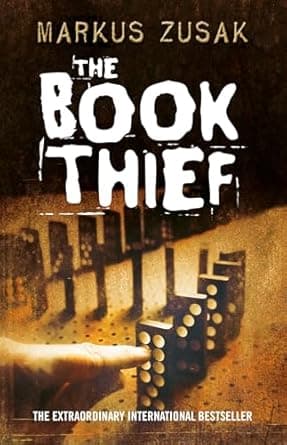
Book Stats
756
Upvotes
68
Downvotes
+688
Net Score
The Book Thief
by Markus Zusak
Description
Set in Nazi Germany and narrated by Death, this unique novel tells the story of Liesel Meminger, a girl who steals books and finds hope in the darkest of times.
Death is tired. In 1939, he's working overtime in Germany, and he notices Liesel Meminger at her brother's funeral. She's nine years old, and she steals her first book from the gravedigger's manual left behind in the snow. This act of theft will become her obsession as she struggles to survive in the foster home where she's been placed.
Zusak's decision to narrate the story through Death's perspective is brilliant—it allows him to reveal the story's tragic ending while focusing on the beauty and resilience that persist even in wartime. Death is not the villain here; he's simply doing his job, and he's as moved as any human by the acts of kindness and cruelty he witnesses.
Liesel's foster father Hans Hubermann teaches her to read, and books become her refuge from the increasingly dangerous world around her. When the family hides a Jewish man named Max in their basement, Liesel's world expands to include the larger horrors of Nazi persecution. The novel shows how literature and storytelling can provide hope and human connection even in the most dehumanizing circumstances.
The book's portrayal of ordinary Germans during the war is nuanced and complex. Hans and his wife Rosa are not heroes in any traditional sense—they're poor, working-class people trying to survive. But their decision to help Max represents a form of everyday heroism that Zusak suggests is more common than we might expect.
Zusak's prose is lyrical and accessible, capable of capturing both the horror of war and the small moments of beauty that make life worth living. The novel's exploration of the power of words—to hurt and to heal, to spread hatred and to foster understanding—makes it particularly relevant for young readers learning about this dark period in history.
The Book Thief became an international bestseller and was adapted into a successful film, proving that young adult fiction can tackle serious historical subjects without sacrificing literary merit.